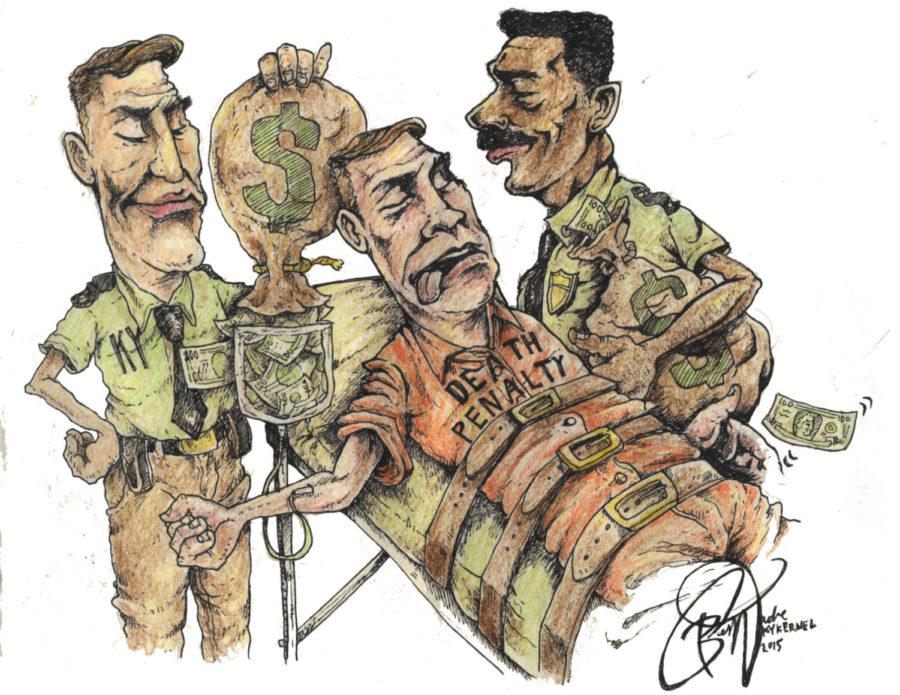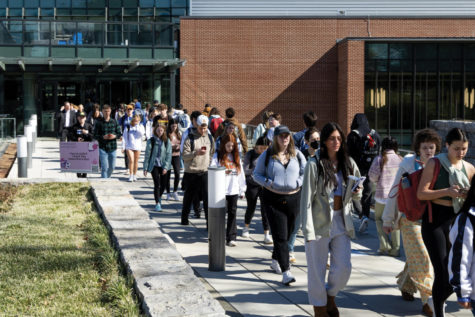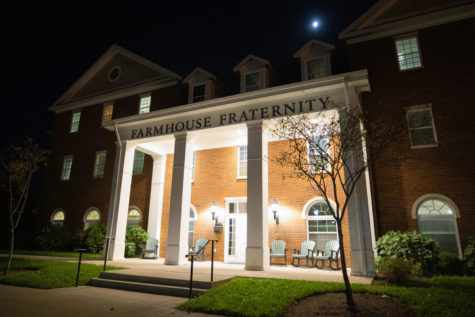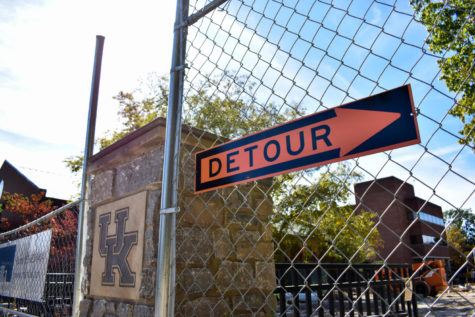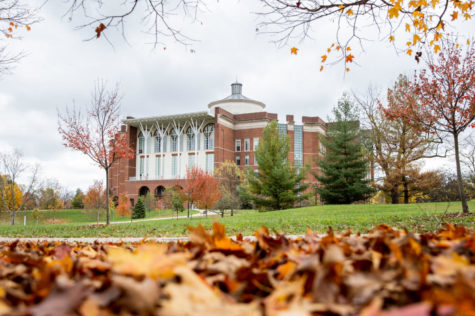Kentucky budget wasted on unused death penalty
March 2, 2016
It is time for a change in how Kentucky law uses, or fails to use, the death penalty. Circuit Court Judge Pamela Goodwine made it clear during the conviction of Carlos Ordway for two counts of murder that, while the death penalty is constitutional here and sometimes necessary, the cost is detrimental to Kentucky’s economy.
“I don’t think anybody would argue that the Commonwealth is in recession, and that there is an added cost to putting someone on death row,” Goodwine said in trial, according to a report from the Lexington Herald-Leader.
In Kentucky, the death penalty is rarely given and, in even fewer cases, actually executed. According to deathpenaltyinfo.org, only three people have been successfully processed through death row and executed for their crimes in Kentucky since the U.S. reinstated capital punishment in 1976. The last execution performed in Kentucky was in 2008.
Kentucky rarely kills its criminals, especially compared to states like Texas where the death penalty is exercised frequently. But what about the people who do not make it to the lethal injection table?
There are currently 34 inmates in Kentucky waiting on death row to be sentenced. These inmates may be there for much longer than a normal court case would take. It shouldn’t matter how long it takes – the inmates shouldn’t be sentenced to die.
“I doubt there are actual appropriate punishments for the horrid things that can be done in this world, but I do not believe that imposing death is the most appropriate one,” said Leah Kubala, a political science freshman.
There are certain factors that go into why it is such an extensive process, the biggest being the appeals process.
Typically, a case may take up to a decade, but there are always exceptions. The death sentence is the ultimate price to pay; it shouldn’t be taken lightly and there is no room for error.
However, time equals money. Kentucky has spent millions since 1976 maintaining a system that has only put three convicted inmates to death.
“Nationally, what we’ve seen is that on average, a death penalty case from the very beginning to the execution can cost fives times as much as life in prison without the possibility of parole,” Shekinah Lavalle, the coordinator for the Kentucky Coalition to Abolish the Death Penalty said.
The Kentucky Department of Public Advocacy estimates that Kentucky spends about $8 million per year defending, prosecuting and keeping death-row inmates in prison. The 34 inmates on death row have been convicted of their crimes, but because of the appeals process they are able to take a chance at life without parole.
Plain and simple, Kentucky is not using the death penalty enough to uphold a good argument to keep it. Supporters may argue that it is sound and constitutional, but it only is in an ideal world. If the conviction rate in murder cases were 100 percent accurate, many criminals would have a viable reason to be sentenced. Unfortunately, it isn’t, and many people are convicted of crimes they didn’t commit.












































































































































